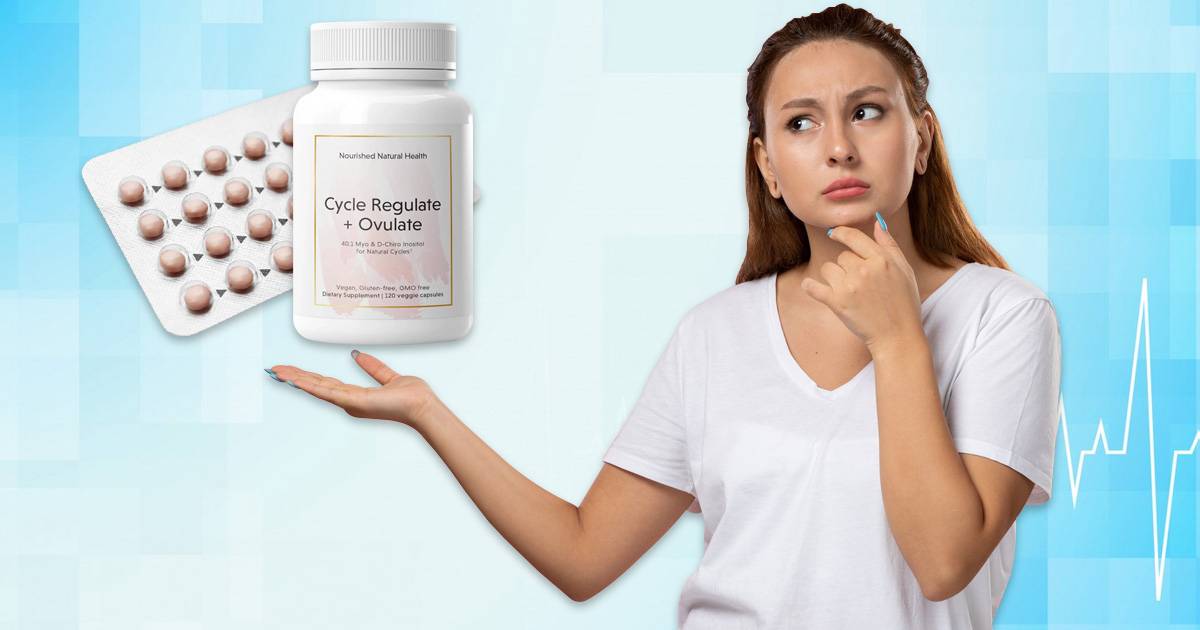The Link Between Birth Control and PCOS: Myth or Fact?

Polycystic ovary syndrome (PCOS) is a common hormone condition that affects women during their reproductive years. It causes symptoms like irregular periods, weight gain, acne, and unwanted hair growth. While PCOS can happen without any link to birth control, some women notice these symptoms after they stop using hormonal contraceptives. This has led to the term “post-pill PCOS.”
What is Post-Pill PCOS?
When you quit using hormonal birth control, your body attempts to revert to its normal hormonal state. In some women, this shift can trigger symptoms of PCOS, that were either masked by the pill or worsened after coming off it. This is referred to as post-pill PCOS.
The key difference between regular PCOS and post pill PCOS is that in the latter, the symptoms appear or become more pronounced after stopping birth control. It’s important to note that birth control pills do not cause PCOS, but they can hide an underlying hormonal imbalance that leads to PCOS after birth control.
Does Birth Control Cause PCOS?
The short answer is no. The exact cause of PCOS isn’t fully understood, but it is believed to be a combination of genetic and environmental factors. Although the specific gene has not been identified, PCOS often runs in families. However, birth control tablets can help manage some of the symptoms of PCOS by managing hormone levels.
When women stop taking the pill, the body’s hormones can become unbalanced, leading to the symptoms of PCOS. These symptoms might have existed before taking the pill or may have been brought on by the hormonal shift after stopping the medication. This can lead to confusion and make it seem like the pill caused the PCOS, but in reality, the symptoms were simply hidden while on birth control.
What are the symptoms of Post-Pill PCOS?
The symptoms of post pill PCOS are similar to those experienced with PCOS in general. Here are some of the common symptoms women may notice after coming off birth control:
1. Irregular Periods: One of the most common signs of PCOS is irregular or absent periods. After stopping birth control, your periods might become irregular again, which could be a sign of post pill PCOS.
2. Acne: Hormonal acne can return or worsen once you stop taking the pill, especially if acne was a problem before starting birth control.
3. Excess Hair Growth: Some women notice increased hair growth on their faces, chests, or other regions. This disorder, known as hirsutism, is caused by high testosterone levels that might occur after discontinuing the pill.
4. Weight Gain: Women with PCOS after birth control may find it harder to maintain a healthy weight. Hormonal imbalances and insulin resistance can make it easier to gain weight.
5. Ovarian Cysts: PCOS is characterized by a large number of tiny cysts on the ovaries. These cysts may cause discomfort, bloating, or pain.
6. Hair Thinning: Some women with post pill PCOS experience hair thinning or even hair loss due to increased androgens.
7. Hormonal Changes: Can cause mood swings, irritability, and fatigue.
8. Difficulty Conceiving: Because of irregular ovulation, women with PCOS may find it difficult to conceive. This can be a problem for those who develop PCOS after discontinuing birth control.
How to diagnose post-pill PCOS?
If you feel you have post-pill PCOS, you should consult a healthcare specialist to get a correct diagnosis. Your doctor may examine your medical history, do blood tests to assess hormone levels, and perform an ultrasound to look for ovarian cysts.
PCOS symptoms can sometimes be confused with other health issues, such as thyroid problems, so getting the right diagnosis is important for choosing the correct treatment plan.
How to treat post-pill PCOS?
Managing post pill PCOS often involves a combination of lifestyle changes and medical treatment. Symptom management options include the following:
1. Lifestyle Changes
- Diet and Nutrition: Eating a healthy diet is key to managing PCOS symptoms. Concentrate on complete foods, lean proteins, vegetables, and healthy fats. Avoid processed meals and refined sugars, which can exacerbate insulin resistance, a major component in PCOS.
- Exercise: Regular exercise can help to improve insulin sensitivity and weight management. Aim for 30 minutes of moderate activity most days of the week.
- Stress Management: Chronic stress can exacerbate hormonal abnormalities. Yoga, meditation, and mindfulness are all practices that can help you manage your stress and symptoms.
2. Medical Treatments
If lifestyle changes aren’t enough, there are medical options to manage post pill PCOS symptoms:
- Hormonal Treatments: If your periods are irregular or other symptoms persist, your doctor may recommend hormonal treatments to help regulate your cycle.
- Metformin: Metformin can assist women with insulin resistance manage their blood sugar levels and alleviate symptoms such as weight gain and irregular periods.
- Fertility Treatments: If you’re trying to conceive and have PCOS after birth control, medications like Clomid can help induce ovulation and improve your chances of pregnancy.
- Anti-Androgen Medications: To manage symptoms like acne and hair growth, your doctor may prescribe anti-androgen medications like spironolactone.
How Long Does It Take for Symptoms to Improve?
The time it takes to notice changes in post-pill PCOS symptoms varies. Some women may see changes in just a few months, while others may take longer. To achieve the best outcomes, you should maintain a healthy lifestyle and adhere to your doctor’s treatment plan.
Birth Control Pills Doesn’t Cause You PCOS
Post pill PCOS is a condition where symptoms of PCOS emerge or worsen after stopping hormonal birth control. While birth control does not cause PCOS, it can mask symptoms, making the condition worse. them more noticeable once you stop taking it. Common symptoms include irregular periods, acne, and weight gain.
If you develop PCOS symptoms after using birth control, see a doctor for an accurate diagnosis and treatment. With the correct strategy, including lifestyle changes and medication treatments, you can control the disease and enhance your quality of life.
